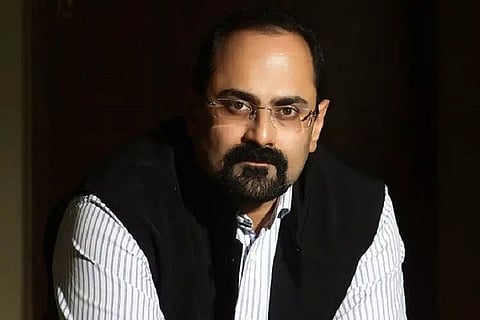
- Home
- Live Blog
- Breaking News
- Top Headlines
- Cities
- NE News
- Sentinel Media
- Sports
- Education
- Jobs

NEW DELHI: India's Minister of State for Electronics and Information Technology (MEITY), Rajeev Chandrasekhar, has revealed plans to introduce new legislation aimed at tightly regulating the internet and combating cybercrimes in the country. The Digital India Bill, which will undergo consultations with stakeholders starting this month, aims to address various online safety concerns, including the fight against child sexual abuse material, religious incitement material, patent violations, and misinformation on social media platforms.
The bill encompasses a comprehensive list of 11 categories of content that will be strictly regulated. These categories include pornography, content harmful to children, copyright infringement, misleading content, impersonation, content considered against India's unity and integrity, computer malware, banned online games, and any other form of illegal content. "There are 11 things that we don't want on social media - child sexual abuse material, religious incitement material, patent violation material, misinformation, and things like that," he said.
While some of these categories are already covered in the existing Information Technology (Intermediary Guidelines and Digital Media Ethics Code) Rules of 2021, the Digital India Bill will provide the government with the necessary legal authority to hold platforms accountable for hosting such content.
"In 2014, we were the most digitally unconnected country in the world," Mr. Chandrasekhar said, highlighting the rapid transformation India has undergone in the digital domain. "Today, 85 crore people in the country are connected to the Internet. Today, we have become the largest connected country in the world. By 2025, this number will grow to 120 crore."
The introduction of the Digital India Bill aligns with the government's vision of creating an open and secure Internet environment while safeguarding the digital rights of Indian citizens. Rajeev Chandrasekhar emphasized the government's commitment to ensuring that India becomes the safest and most trusted country in the digital realm. As India boasts the largest number of internet users globally, the government recognizes the significance of establishing stringent regulations to protect its citizens online.
By implementing this legislation, the Indian government aims to curb cybercrimes, combat the dissemination of harmful and illegal content, and promote a secure digital ecosystem. The upcoming Digital Personal Data Protection Bill will complement these efforts, further enhancing the privacy and security of personal data in the country. The government's focus on creating a safe and trusted internet environment reflects its commitment to protecting Indian citizens' interests in the digital age.
ALSO WATCH: